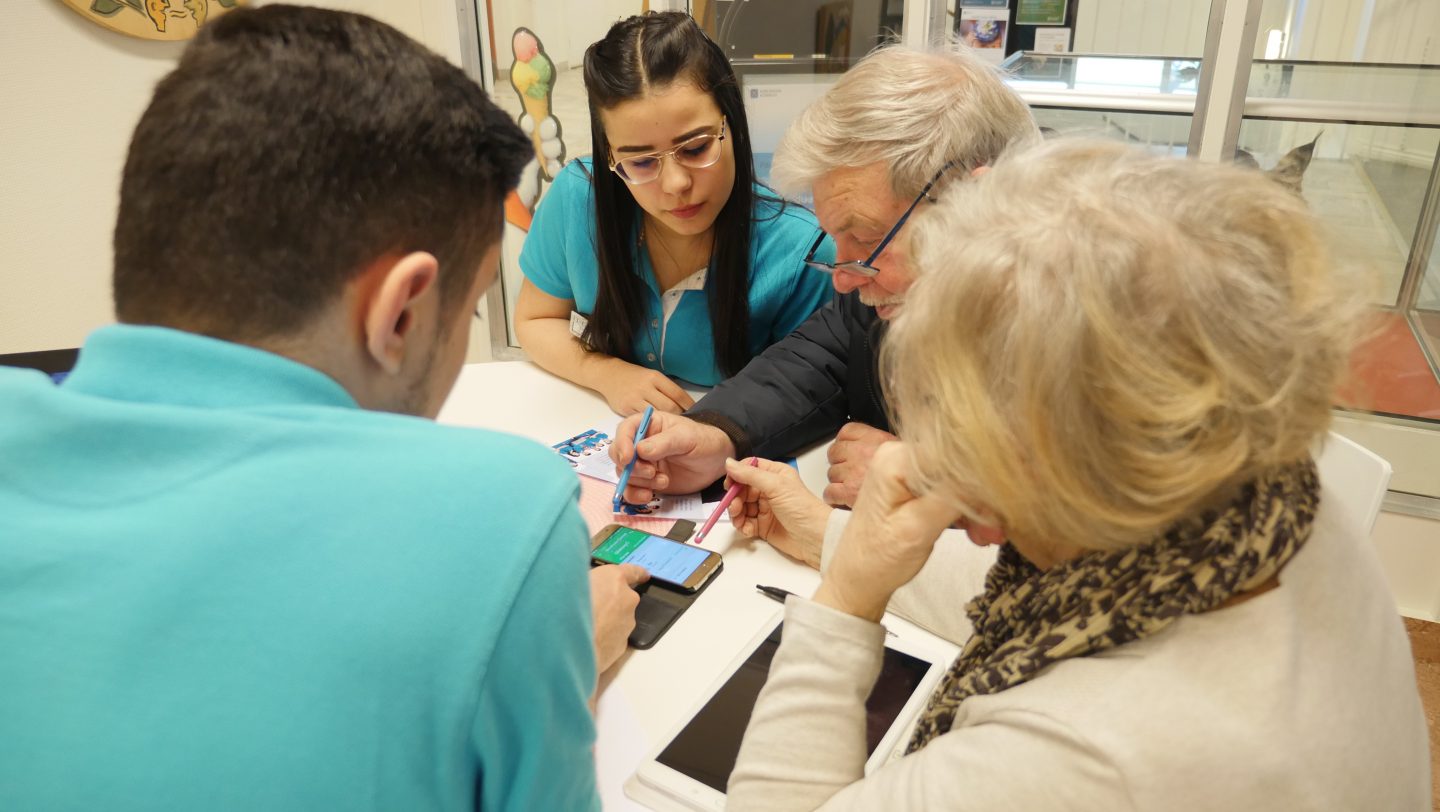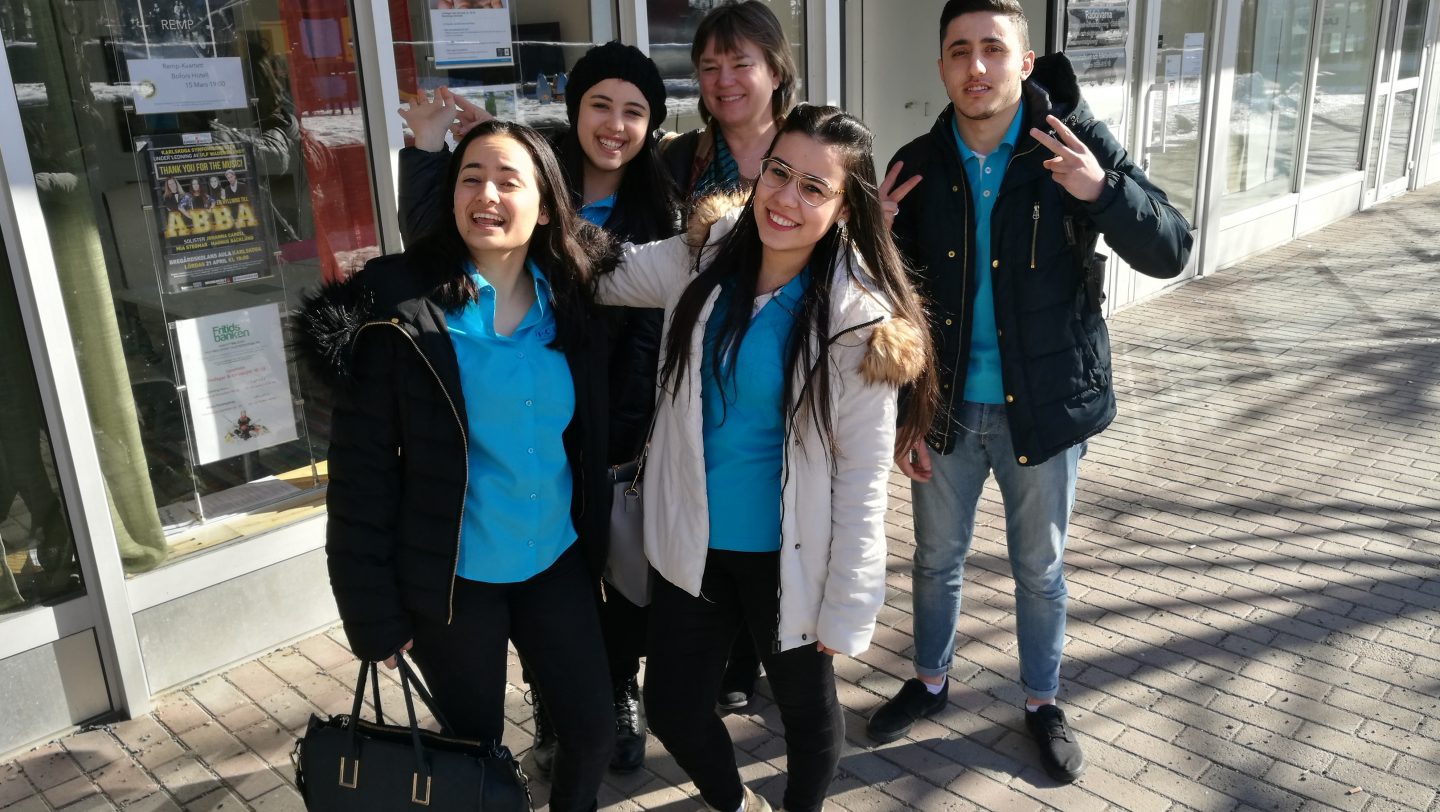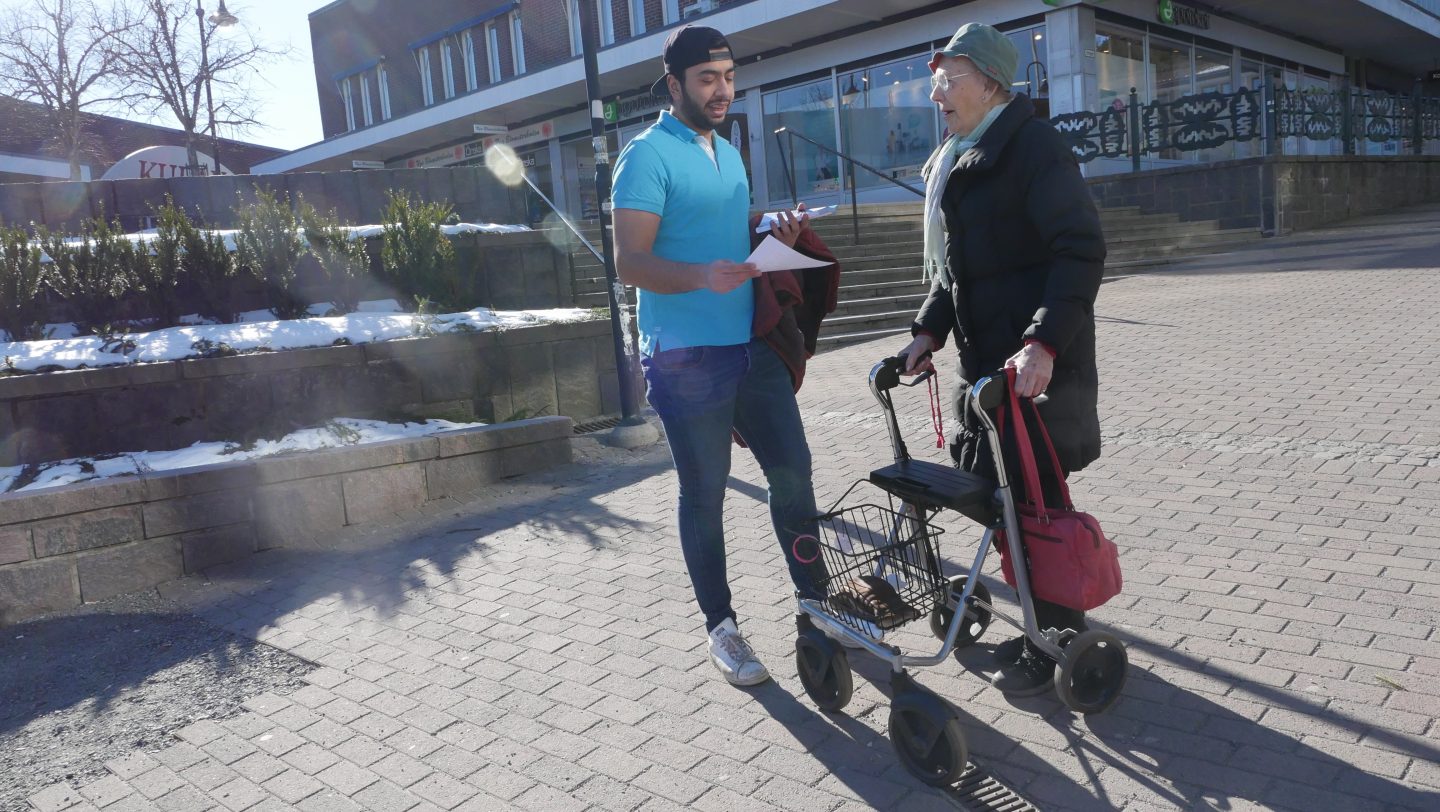Young refugees teach IT skills to seniors in Sweden
As refugees need a place to practice speaking Swedish, and seniors need help managing their new smartphones, it would be a lost opportunity not to bring these two groups together.
Setrag and Sara teach Kerstin and Åke how to use a local transport app at the public library in Karlskoga. © UNHCR/Anders Aalbu
It is a Saturday in Karlskoga, in the middle of Sweden. Kerstin and her husband, Åke, have each brought their smartphones, a tablet and a laptop. They’ve got a slew of questions, and they admit they might have already asked some of them. But Setrag and his colleague Sara don’t mind. A repeated question is just another opportunity for them to practice Swedish.
While working as an IT guide, Setrag speaks slowly. But so do the seniors who come to the public library every Saturday to learn how to use their computers and smartphones. They don’t mind that their teachers are refugees, as speaking slowly makes it easier for them to understand each other.
Wearing his blue IT guide shirt, Setrag patiently explains to Kerstin: “But now you want to travel by bus, so you have to open another app, because this one is for buying train tickets,” Setrag says. As the app loads, Setrag explains to Kerstin that the initial message that shows up is a one-off. “You’ll only see this the first time. It’s supposed to give you an idea about how to use the app,” he explains as he points to the spot saying “Next”.
Setrag Godoshian, 20, came to Sweden from Syria in 2014. He has spent three years in the introductory programme learning Swedish. A certain level of Swedish speaking skills was needed for him to become an IT guide. Now Setrag gets to speak lots of Swedish, has his first important job in Sweden, and he’s more integrated in the local community. In return, numerous seniors are improving their IT skills.
Sara Alaydi, 20, is also a Syrian refugee, who arrived in Sweden in 2015. Becoming an IT guide has led to major changes in her integration into the Swedish society. “It has helped me so much. I’ve become more social, for instance, also at school. My experience from the job as an IT guide helps with all the group work we have in class,” she explains. “Elderly people tend to speak a little bit slower, which makes it easier for us. And it also makes it less nerve-racking to talk to them, so we constantly get a chance to practice,” Sara says. “And we’re more confident speaking with them, even though we make mistakes,” Setrag adds.

Kerstin and Åke have learned a lot from IT Guide and say they also recommend it to their friends. © UNHCR/Anders Aalbu
Both Kerstin and Åke are very impressed by the IT guides helping them. “They’ve taught us so much, from online banking to Google Maps. The younger generation learn so fast. I’m glad we’ve been able to come here several times to learn computer skills from them,” Kerstin says.
IT Guide Sweden started in 2010. Its founder, Gunilla Lundberg, was approached by two teenagers, both having just arrived in Sweden, and in need of a summer job. Gunilla asked what they were good at, and the answer was “we’re good with computers”. Today, IT Guide is present in more than 20 Swedish municipalities and employs about 200 young IT Guides.
The intention of IT Guide Sweden is partly to offer young refugees a first job – something that can prove to be very valuable when moving forward in life. Good references from former employers are always an asset when applying for future jobs. In the future, Setrag would like to study to become either an IT engineer or a computer game developer. He has chosen the IT program at high school as well, making his part-time job as an IT guide on the weekends highly relevant. “I want to continue helping people with their challenges. For, me it’s a fun job. At the same time, we learn Swedish, which helps us communicate with the Swedes. And of course, it’s good to have a paid job,” Setrag adds.

Another Saturday of IT guidance has come to an end. Next Saturday, the team will move on to another location, as IT Guide Sweden expands to new places in Sweden. © UNHCR/Anders Aalbu
IT Guide Sweden was nominated for the Swedish Door-Opener Award for 2018, an award recognizing Sweden’s best integration initiatives.
Share on Facebook Share on Twitter

